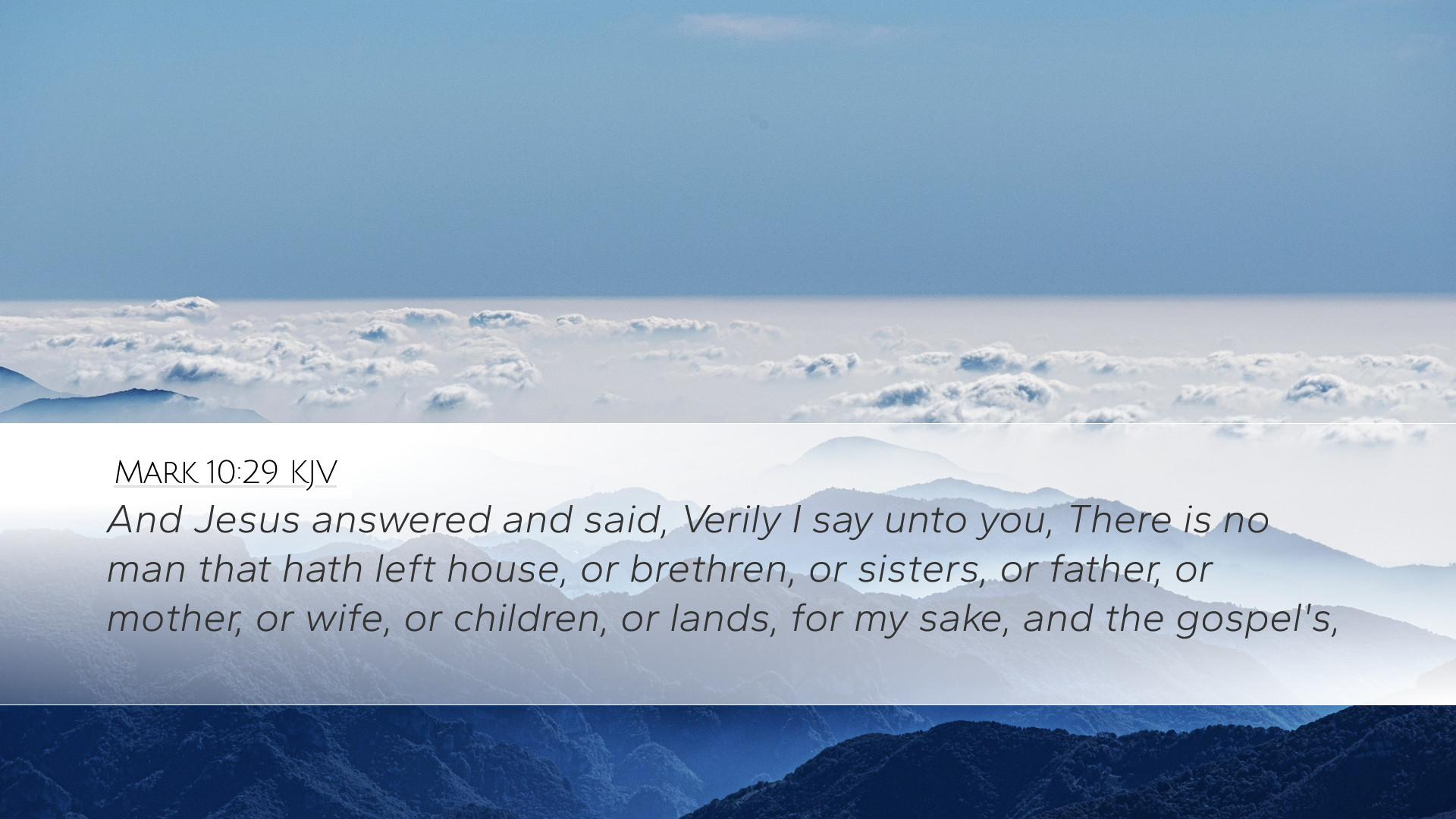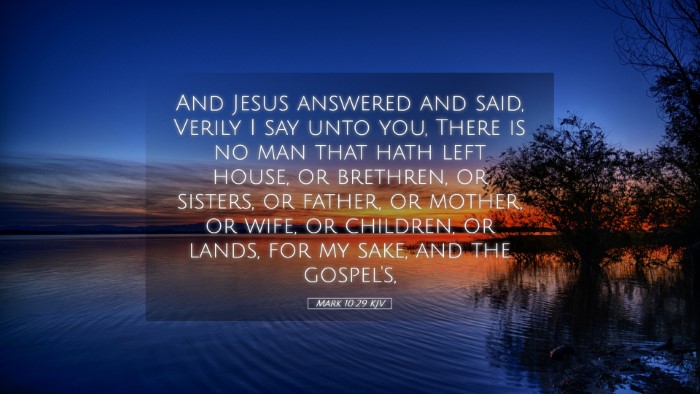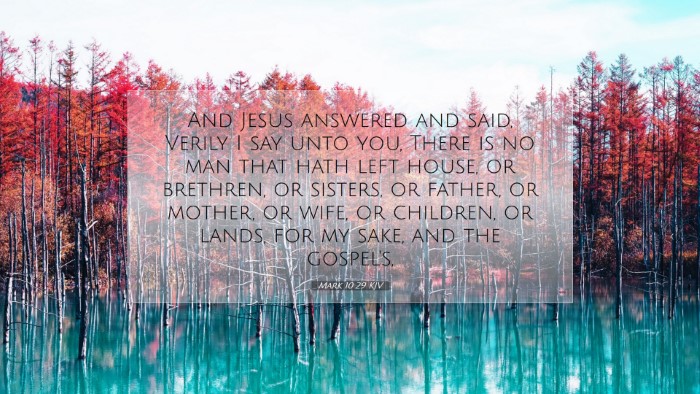Commentary on Mark 10:29
Verse Text: "And Jesus answered and said, Verily I say unto you, There is no man that hath left house, or brethren, or sisters, or father, or mother, or wife, or children, or lands, for my sake, and the gospel’s,"
Introduction
This verse is a profound declaration by Jesus, emphasizing the sacrifices involved in following Him. In the context of Mark 10, Jesus addresses the disciples after the encounter with the rich young ruler, illustrating the costs of discipleship. Commentators throughout history have reflected upon the implications of leaving behind one's familial and societal ties for the sake of Christ and the gospel.
Analysis of the Text
1. The Assurance of Jesus
Matthew Henry highlights that Jesus begins with "Verily" or "Truly," which signifies the importance and certainty of His statement. This assurance serves to strengthen the faith of His followers. The phrase underscores that what follows is a fundamental truth for those who choose to follow Him.
2. The Scope of Sacrifice
Albert Barnes notes the extensive list of relationships and possessions mentioned by Jesus: house, brethren, sisters, father, mother, wife, children, and lands. This enumeration signifies that true discipleship may require a total commitment, where one must prioritize spiritual obligations over earthly attachments. Each relationship represents a significant aspect of human life that one must be willing to surrender.
3. The Conditions of Discipleship
Adam Clarke elaborates on the conditions imposed by Christ on His followers. The use of the phrasing "for my sake, and the gospel’s" suggests that the motivation behind such sacrifices must be the love of Christ and the advancement of the gospel. This indicates that the cost of discipleship is not merely about forsaking worldly ties but about engaging in a larger mission that transcends personal interests.
Theological Implications
1. The Nature of True Discipleship
The demands of discipleship are a recurring theme in Christian theology. Commentators suggest that the willingness to leave treasured relationships or possessions reflects a heart wholly devoted to Christ. Mark 10:29 challenges believers to assess their priorities and commitments in light of their faith. This resonates with the broader biblical narrative that prioritizes obedience to God above all else (see Matthew 10:37).
2. The Cost of Following Christ
In light of Matthew Henry's insights, believers must recognize the reality of sacrifice in the Christian walk. Jesus does not shy away from acknowledging the hardships that might accompany a decision to follow Him. However, this also points to the greater reward that follows, which Jesus encapsulates in the verses that follow Mark 10:29, offering hope and encouragement to believers who make such sacrifices.
Practical Applications
1. Evaluation of Allegiances
For pastors and spiritual leaders, Mark 10:29 serves as a critical self-reflection point. They are encouraged to guide their congregants in considering the nature of their personal allegiances. Are their alliances rooted in the temporal or in the eternal? This examination is crucial for fostering a church committed to the gospel's mission.
2. Encouragement to the Discouraged
For those feeling the weight of sacrifice, Albert Barnes provides reassurance. Recognizing that leaving behind these things for Christ's sake is noble, believers can find comfort in knowing they are part of a greater calling. This message can be powerfully transformative in fellowship settings, where testimonies of sacrificial love for Christ can inspire and uplift others.
3. Commitment to the Gospel
In practical terms, fostering a commitment to the gospel requires both personal and communal efforts. Churches are reminded to create an environment where teaching about sacrifice and commitment can encourage members to live out their faith actively, even amidst the challenges they may face.
Conclusion
Mark 10:29 encapsulates the essence of what it means to follow Christ: a willingness to leave everything behind for Him and the Gospel. Through the insights of historical commentaries, we see that this sacrifice is not in vain; rather, it leads to eternal reward. Pastors, scholars, and all believers are called to reflect on this passage as they navigate their commitment to Christ in a world filled with competing interests.


